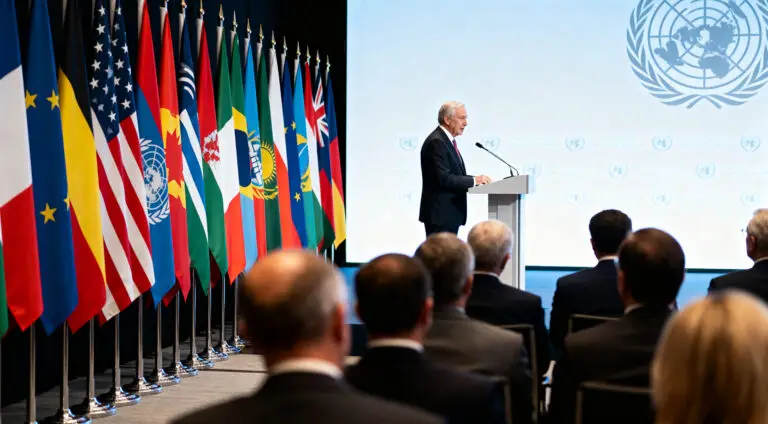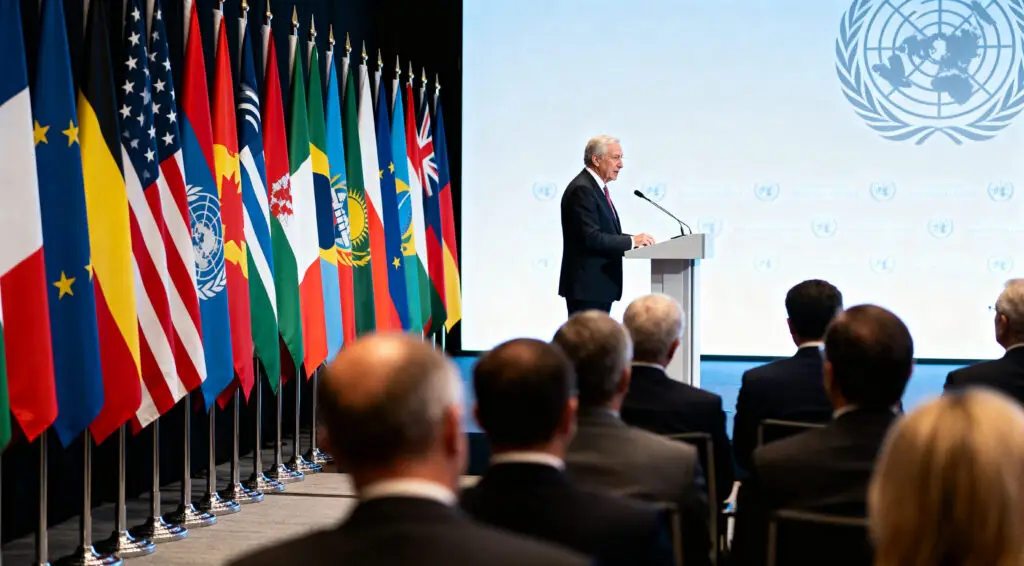El Salvador’s Bitcoin Adoption Under US Senate Scrutiny
El Salvador’s pioneering adoption of Bitcoin as legal tender has once again drawn the attention of the United States Senate, this time under a cloud of controversy. In June 2025, Senators Chris Van Hollen, Tim Kaine, and Alex Padilla introduced the “El Salvador Accountability Act of 2025.” This proposed legislation aims to impose sanctions on the executive branch of El Salvador’s government, citing alleged involvement in corruption and human rights violations, particularly concerning the constitutional rights of U.S. citizens.
The bill’s introduction places El Salvador’s government and its unique Bitcoin strategy directly in the spotlight, raising questions about the intersection of national digital asset policies and international human rights concerns. This development underscores the increasing scrutiny that Bitcoin adoption by nation-states may face on the global stage, especially when linked to broader geopolitical and ethical considerations.
The “El Salvador Accountability Act of 2025”: Sanctions and Human Rights
The “El Salvador Accountability Act of 2025” is a legislative initiative designed to hold the executive branch of El Salvador’s government accountable for alleged human rights abuses. The bill proposes to enact sanctions specifically targeting President Nayib Bukele, several ministers within his administration, and any foreign individuals found to have engaged in “gross violations of internationally recognised human rights.”
Furthermore, it addresses concerns about the acceptance of “taxpayer dollars” to “deprive individuals residing in the United States of their rights.” This comprehensive approach aims to exert diplomatic and economic pressure on El Salvador’s leadership, emphasising the US Senate’s commitment to upholding human rights standards and ensuring accountability for actions perceived to undermine fundamental freedoms, regardless of a nation’s economic policies.
Probing Bitcoin’s Role in Alleged Corruption and Sanctions Evasion
A central and highly significant aspect of the proposed “El Salvador Accountability Act of 2025” is its explicit focus on Bitcoin. The bill hints at the potential involvement of Bitcoin funds in alleged corrupt exchanges and human rights violations. If passed, the legislation would mandate the Secretary of State to prepare a detailed report. This report would be tasked with linking El Salvador’s president and his administration to the use of cryptocurrency “as a mechanism for gross corruption, graft, and sanctions evasion.” This direct enquiry into Bitcoin’s potential misuse in illicit activities marks a critical moment for the cryptocurrency, as it brings the asset under direct governmental scrutiny concerning its role in international financial integrity and human rights.
Demanding Transparency: Bitcoin Funds and Wallet Details
The proposed bill goes further in its demand for transparency regarding El Salvador’s Bitcoin holdings. The report mandated by the “El Salvador Accountability Act of 2025” would require specific and detailed information. This includes an estimate of the funds utilised by El Salvador to acquire Bitcoin, a comprehensive list of the addresses and exchanges employed for these transactions, and a roster of individuals with access to these Bitcoin reserves.
Crucially, the Secretary of State would also be required to assess whether Bitcoin is actively being used to circumvent existing financial sanctions. This level of granular detail reflects a deep concern within the US Senate about the potential for digital assets to be exploited for illicit purposes, emphasising the need for greater oversight and accountability in their national adoption.
Related to: Bitcoin and Crypto Surge as US Trade Deal Hints Emerge
Political Tensions: US Senators vs. President Bukele
The introduction of this bill has predictably ignited political tensions between the US Senate and El Salvador’s President Nayib Bukele. Senator Van Hollen publicly declared, “President Bukele and the Government of El Salvador are colluding with the Trump Administration, taking American taxpayer dollars to imprison people as part of a scheme to violate their constitutional rights.” This strong accusation highlights the gravity of the allegations and the political weight behind the proposed sanctions.
President Bukele, for his part, has publicly dismissed these claims, taking to social media to assert that Democrats were “just salty,” indicating a defiant stance against the US legislative efforts. This exchange underscores the diplomatic friction that can arise when a nation’s sovereign financial decisions, particularly those involving novel assets like Bitcoin, intersect with international human rights concerns and political agendas.
The Broader Implications for National Bitcoin Adoption
The “El Salvador Accountability Act of 2025” carries significant broader implications for other nations considering or implementing Bitcoin as a national asset. This bill sets a precedent, demonstrating that the adoption of cryptocurrencies at a state level can become intertwined with geopolitical considerations, human rights records, and international financial regulations. It highlights the potential for external pressures and sanctions if such adoptions are perceived to be linked to illicit activities or violations of international norms.
For countries looking to follow El Salvador’s path, this development serves as a cautionary tale, emphasising the importance of robust regulatory frameworks, transparency, and adherence to international human rights standards to avoid similar scrutiny and potential repercussions from global powers.
Bitcoin’s Evolving Narrative: From Innovation to Scrutiny
This legislative development marks an important evolution in Bitcoin’s narrative on the global stage. While Bitcoin has often been celebrated for its innovative financial capabilities, its role in empowering financial freedom, and its potential as a hedge against traditional economic systems, the “El Salvador Accountability Act of 2025” introduces a new dimension of scrutiny.
It forces a conversation about the potential for decentralised technologies to be misused by state actors, raising critical questions about accountability and oversight in the digital age. As Bitcoin continues to gain traction globally, its journey will increasingly involve navigating complex geopolitical landscapes and addressing concerns that extend far beyond its technological and economic merits, shaping its future perception and adoption trajectory.















